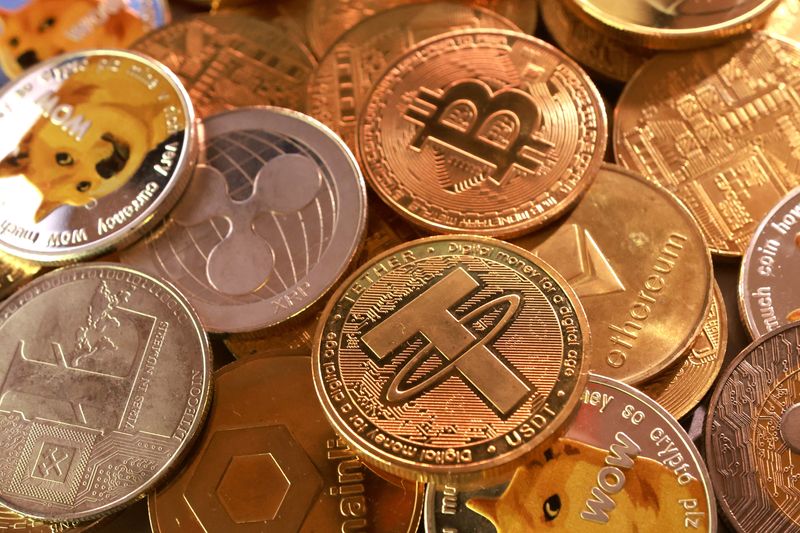Exclusive-Brazil eyes taxing crypto for cross-border payments, sources say
By Marcela Ayres and Bernardo Caram
BRASILIA (Reuters) -Brazil is looking at taxing the use of cryptocurrencies for international payments, two officials with direct knowledge of the discussions told Reuters, closing a loophole in the country’s usual levy on foreign-exchange transactions.
One of the sources, who spoke on condition of anonymity about the confidential talks, said the Finance Ministry is looking at expanding its financial transaction tax (IOF) to some cross-border transfers using virtual assets and stablecoins that the central bank classified this month as forex operations.
Crypto transactions are not currently subject to the IOF tax. Investors must pay income tax on capital gains from crypto assets in excess of a monthly exemption.
The Finance Ministry declined to comment on the matter.
MOVE COULD BOOST REVENUE
Although both sources stressed the move was designed to close a regulatory loophole, the effect could be a boost in public revenue, which is under scrutiny as Brazil struggles to hit its fiscal targets.
Brazil’s crypto market has surged in recent years, driven largely by the use of stablecoins, which are backed by assets such as the U.S. dollar and are less volatile than other cryptocurrencies.
Federal tax authority data show crypto transactions in Latin America’s largest economy hit 227 billion reais ($42.8 billion) in the first half of 2025, up 20% from a year earlier.
Two-thirds of that volume was trading of USDT, the dollar-backed stablecoin issued by Tether. By contrast, bitcoin – a decentralized digital asset with freely fluctuating prices – accounted for just 11% of transactions.
The central bank has paved the way for a tax change with its new regulatory framework, one source said, based on the assessment that stablecoins in Brazil are used largely as a cheap way to hold dollar balances.
The source said the new rules should “ensure that the use of stablecoins does not create regulatory arbitrage vis-a-vis the traditional foreign-exchange market.”
Brazilian officials have long warned that stablecoins were being used mainly for payments rather than investment, creating a new channel for money laundering amid a regulatory vacuum.
RULES TAKE EFFECT IN FEBRUARY
Under the central bank rules taking effect in February, any purchase, sale or exchange of stablecoins will be treated as a foreign-exchange transaction.
The classification also covers international payments or transfers using virtual assets, settling obligations from card transactions or other electronic methods, and moving assets to or from self-custody wallets.



Leave a Comment
Your email address will not be published. Required fields are marked *